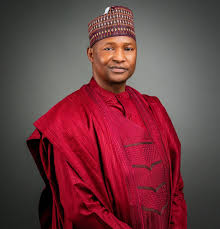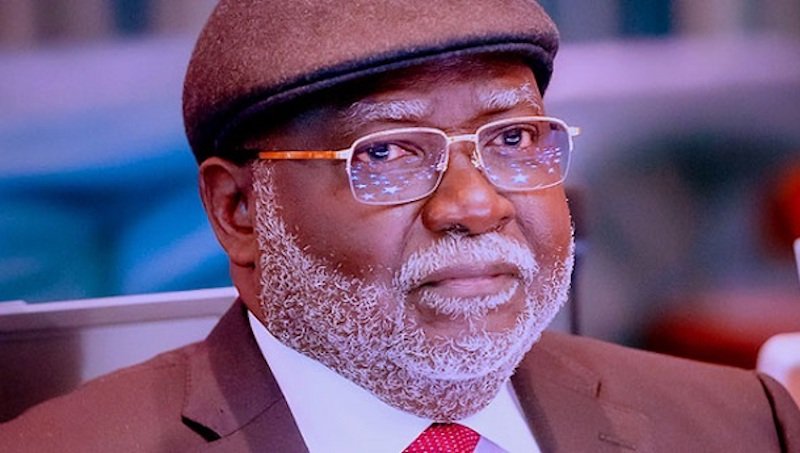
The judicial career of Francis Chukwuma Abosi was supposed to last only seven years. In the event, he did 12 and may well have reached 20 years if events had not intervened. In his 12th year as a judge in April 2020, while serving as the Acting President of the Customary Court of Appeal of Imo State in south-east Nigeria, the National Judicial Council (NJC) mercifully ended it all.
When he attended the Nigerian Law School, as all Nigerian lawyers must, Francis Abosi deposed that he was born in November 1950. On his appointment as a judge in 2008, therefore, Francis Abosi was 58. At the time, the retirement age of all judges was 65. This meant he would have been due to retire in 2015.
In 2008 also, a judge could only retire on their terminal salary as pension if they had served for at least 15 years. In the case of Francis Abosi, he well knew that based on his date of birth, he was eight years short of what he needed to be eligible to retire on his terminal salary as his judicial pension.
The answer to this problem was rather straightforward – Francis Abosi edited his birth year from 1950 to 1958. This act added eight years to the seven that he would have served, bringing his notional judicial tenure to 15 years, at which point he would have been entitled to his terminal salary as his judicial pension.
What Francis Abosi could not do, however, was alter the filings he had done prior to becoming a judge, especially those he made upon matriculation as an under-graduate and also on admission to the Nigerian Law School. Upon being appointed to act as the President of the Customary Court of Appeal, they caught up with him. In April 2020, the NJC found him guilty of “the falsification of his date of birth from 1950 to 1958. Findings showed that he was supposed to have retired in November 2015 when he clocked the mandatory retirement age of Sixty-five (65) years.”
Francis Abosi’s feat of genealogical management had far reaching consequences. He became President of the Customary Court of Appeal of Imo State nearly three years after he should have retired. That means he took someone else’s job unlawfully. It could have been worse. Had the NJC not stopped him, Francis Abosi would have been in position in 2023 when the age of retirement changed from 65 to 70, meaning that he would have been on the job until 2028 when biologically he would have been 78. That would have given him 15 years of judicial service beyond his due retirement age.
Francis Abosi was not alone in the business of injudicious emendation. One of his peers in the 2008 cohort of appointments to the judiciary in Imo State was Theresa Eberechukwu Chikeka. A graduate of the University of Maiduguri, Theresa Chikeka became a lawyer in 1982 and did her National Youth Service Corps at the Borno State Ministry of Justice, who employed her thereafter as State Counsel. There she worked for the first ten years of her professional career before transferring her service to Imo State in 1993.
Up to this point, Theresa Chikeka’s records indicate that she was born on 27 October, 1956. With this date of birth, she would have attained retirement at 65 in 2021, two years short of the 15 years of service which would have entitled her to retire on her terminal judicial salary. Borrowing a leaf from Francis Abosi’s book of elastic genealogy, it seems, Theresa Chikeka also adapted her age sometime in 2006, changing her birth year from 1956 to 1958 and making her eligible to retire in October 2023 instead of 2021.
Indeed, according to records in the possession of the Imo State Judicial Service Commission which has looked into the issue, the affidavit deposed to Theresa Chikeka’s mother in support of her new birth year claimed that she was born in 1958, without providing the day or month on which she was extruded from the womb.
On 28 June 2022, the Imo State House of Assembly (IMSHA) confirmed Theresa Chikeka as Chief Judge. This was more than eight months after she should have retired as a judge. In other words, the House of Assembly confirmed as Chief Judge a person who was – as a matter of law – not a judge on the date that they did so.
In 2023, when the age of retirement of judges of the high court was increased to 70 from 65, Theresa Chikeka received another five years of judicial life as Chief Judge when in fact she should have been in retirement two years earlier in 2021.
These facts are not seriously in dispute.
On 14 June 2024, one Comrade Ndubuisi Onyemaechi, on behalf of a group called the Civil Society Engagement Platform (CSEP), filed a petition with the Imo State House of Assembly in Owerri alleging that the Chief Judge had unlawfully edited her age. This allegation goes to the heart of Rule 1(3) of the Judicial Code of Conduct in Nigeria which stipulates that “a judicial officer should respect and comply with the laws of the land and should conduct himself at all times in a manner that promotes public confidence in the integrity and impartiality of the Judiciary.”
The IMSHA referred this to its judiciary committee, which began investigations the following month. They invited Theresa Chikeka to attend but she declined. In a letter to the House dated 12 July 2024, she claimed that “the provisions of the guidelines of my office…. do not permit me to appear before any Investigation Panel (sic) other than a panel set up by the National Judicial Council.”
On 17 July, the Judiciary Committee reported to the IMSHA in plenum which voted through a resolution calling for the removal of Theresa Chikeka as Chief Judge for falsifying her age. Moments after this vote, on the same day, the Chief Judge served the House with an ex-parte order of the Federal High Court in Owerri restraining the House from taking the vote that it had already concluded.
Matters have since then relocated to the NJC which now has cognizance of the allegations against Theresa Chikeka. Having previously told the IMSHA that she cannot answer to any panel except one constituted by the NJC, Theresa Chikeka now tells the NJC that she cannot answer to their panel because of an interim order of the Federal High Court, which has lapsed. On this artifice, she presently claims to function in an office for which she was ineligible to begin with.
In the last week, Chief Justice of Nigeria (CJN), Kudirat Kekere-Ekun, voiced concerns about the credibility of the judicial branch that she leads, appearing rather incredulously to suggest that it is a function of how many judgments and rulings judges produce.
The CJN must realise that no one will take her seriously if she continues to prove unwilling and unable to act swiftly to get rid of the person who now desecrates the office first occupied in 1976 by Akunne Chukwudifu Oputa.
The least anyone can ask of those who hold leadership positions in the judiciary is that they are fit in law to serve as judges. Theresa Chikeka is not. She ceased to be a judge in October 2021. Allowing her to hang on as Chief Judge of Imo State today is egregiously unlawful. The NJC owes Francis Abosi an apology and a recall if Madam CJN continues to prove unwilling and unable to get rid of Theresa Chikeka.
Let her go!
-
A lawyer and a teacher, Odinkalu can be reached at chidi.odinkalu@tufts.edu



























